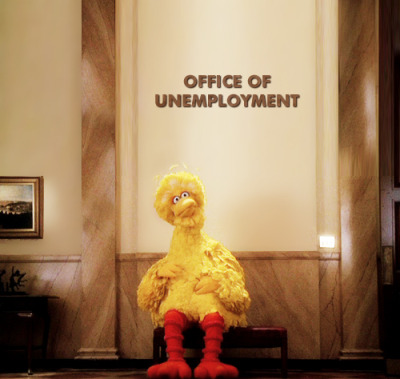Several commentators have disparaged Sen. Bernard Sanders’ argument that turnout will be vital to Democrats in November and that he can help the turnout. He is right on both counts.
Commentators at MSNBC, CNN and now some of the networks have gotten on a train recently, though–pointing to the undoubted fact that Democratic turnout in primaries this year is lower than in 2008. (Barack Obama ran that year. No one has turned out newly energized voters like President Obama.) They also point out that the Democratic turnout is lower than turnout in Republican primaries, where Donald Trump has gotten the GOP moving. So–they go on to gloat–where is the turnout that Sanders promises to deliver? (Some particularly unappealing and smarmy gloating on this item has come from Wolf Blitzer, Rachel Maddow, and Chris Matthews. No surprise there. Matthews’ wife, Kathleen Matthews, is losing her race for Maryland’s 8th District congressional seat, in spite of locking hips with the Clinton team and its donor base behind the scenes; you can’t expect him to be a good sport–a man who uses the phrase “Washington insiders” with a straight face is hardly going to be an objective observer of the nation’s fortunes. Blitzer and a tiny handful of others at CNN have been drawing envious blood from Obama since moments after the president’s election November 4, 2008. They apparently resent both his and Vice President Biden’s independence of the DC media establishment. Maddow seems long since to have bought in to the notion that careerism=feminism, or something to that effect. In between fawning on Brian Williams, she seems to be pretty much engaged in boosting the most mediocre women she can find in public life.)
But there is a factor at work this year that did not weigh on turnout in previous elections. The factor is “superdelegates.” Regardless of how hard Sanders’ ardent supporters work–and most of his supporters are ardent–Hillary Rodham Clinton and her team quietly sewed up somewhere around 450 party insiders, to paste her into the nomination should she have difficulty with voters.

Senator Sanders
Hint to analysts: if you want to be an analyst, it might help to analyze. Is there any realistic possibility that the mass of offstage superdelegates would not discourage turnout, among any voters who knew about them? Or among voters who just saw the delegate tallies for the candidates, without clarification?
So much for hope and change. The insider campaign against both–again, by ‘Washington insiders’–has been relentless–while it has also been picayune, bigoted, petty, envious and competitive. Money does not mean sense.
Nor, in the media establishment, does it mean rigorous adherence to journalistic standards. (You read it here first.) Any political analyst is intellectually required to clarify those superdelegates, in the public interest. That is not happening.
The accrual of more than 400 superdelegates by the wealth- and foundation-supported Clintons should also have been rigorously and accurately reported as it occurred. That did not happen either.
This process will have to change, and will change. In the narrowest partisan terms, it is disastrous for the Democratic Party. Democrats are living in a dream world if they think that a Hillary Clinton campaign can just skate by a nominee like Donald Trump. Trump has already appealed to independents–and to Democrats. It is unrealistic just to assume that a gravely flawed candidate like Clinton can defeat him. This is a pipe dream, and that’s even before the rest of the information on the private-server emails comes out. The insecurities about Hillary Rodham Clinton as a candidate are already manifest, in the behind-the-scenes efforts to prevent anyone else from even running.

Vice President Biden
This strategy is also being feverishly boosted by the Maddows and Matthews of the media world. Maddow spent a lengthy segment one evening on some whack-job’s push to get a death penalty(?) for gays. The clear implication was that Hillary Clinton is our only firewall against measures such as, as Maddow put it, “executing homosexuals.” Do Maddow and her ilk really think that executing homosexuals would be opposed only by a Clinton? They don’t think a candidate like, for example, Vice President Joseph Biden would step up to the plate? They don’t think Biden would oppose executing homosexuals? Do they really think Jim Webb would not have opposed these ills, if he had been allowed in the field? Lincoln Chafee? Wouldn’t even Gov. Martin O’Malley have opposed executing homosexuals, at least if the polls were going the right way?
Bernie Sanders could crush Trump. But he has to become the nominee to do so.
Meanwhile, when these over-promoted, overpaid, and under-qualified folks joined up behind scenes to paste Clinton into a nomination she has not earned and does not deserve, they took away part of my vote. They will not get the rest of it. I will not be blackmailed into voting for the ‘electable’ candidate. For one thing, she’s not. For another, the blackmail is being pushed by the very people who put us in this situation in the first place. This is not a process, a candidate, or a strategy that can withstand accurate scrutiny.















